THE POINT CDC
The PEAK Coalition – UPROSE, THE POINT CDC, New York City Environmental Justice Alliance (NYC-EJA), New York Lawyers for the Public Interest (NYLPI), and Clean Energy Group (CEG) – a campaign to end the long-standing pollution burden from fossil fuel-fired power plants, submitted comments on NYSERDA’s 2024-2030 energy storage incentives plan. The coalition supports the…
This report highlights ways to address New York City’s growing electricity demand and accelerate peaker plant retirement through robust demand management solutions that harness the flexibility of customer devices, such as smart thermostats, heat pumps, electric vehicle chargers, solar, and battery storage, to reduce stress on the electric grid. The report includes best practices for…
Clean Energy Group and its partners submitted comments to the EPA regarding the development of emissions standards and guidelines for existing fossil-fueled stationary combustion turbines.
The PEAK Coalition, in partnership with Earthjustice and El Puente, filed comments on March 7, 2024, with the New York State Public Service Commission. The comments call for the need for a capacity carveout and additional incentives for battery storage in New York City (NYISO’s Zone J) in any upcoming order implementing New York’s Energy Storage Roadmap.
This report outlines the negative impacts that peaker power plants are having on NYC communities, challenges and barriers impeding the speed of the transition, and pathways forward to accelerate the transition to clean alternatives.
The PEAK Coalition submitted comments regarding the EPA’s proposed new carbon pollution standards for coal and gas-fired power plants, expressing grave concerns about the environmental justice implications of the proposed rules.
These comments explain how the proposed Astoria Gas Plant replacement project proposed by NRG in New York City is inconsistent with New York’s Climate Leadership and Community Protection Act emissions reduction mandates. The comments were drafted in response to the issuance of a Draft Title V Air Permit and a Draft Environmental Impact Statement.
The Peak Coalition wrote this letter concerning serious procedural and substantive deficiencies in the Final Scoping Document for the proposed repowering of the Astoria Gas Turbine facility, a 558-megawatt gas peaker power plant located in the New York City borough of Queens.
New York City’s peaker power plants have a disproportionate impact on the city’s most vulnerable people. Replacing peaker plants with a system of localized renewable energy generation and battery storage can reduce greenhouse gas emissions, reduce energy bills, improve public health and equity, and make the system more resilient in the face of increased storms and climate impacts.







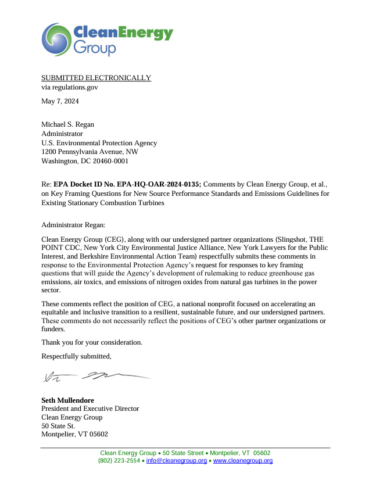
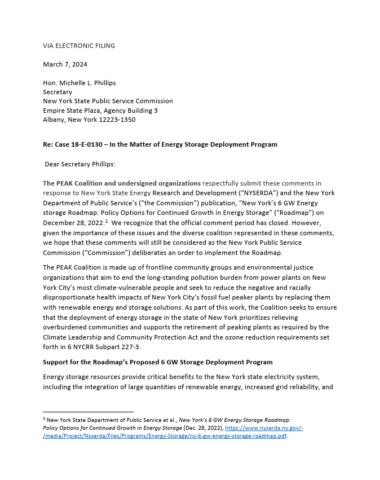

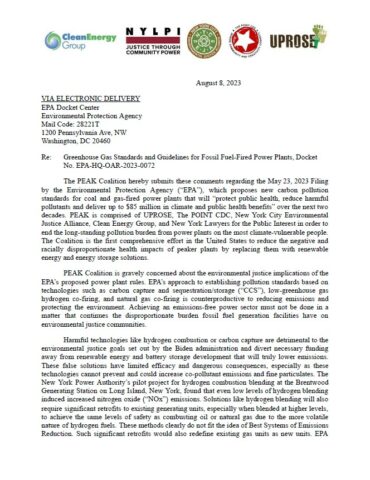
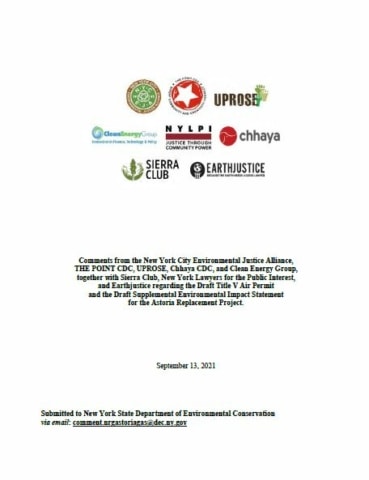
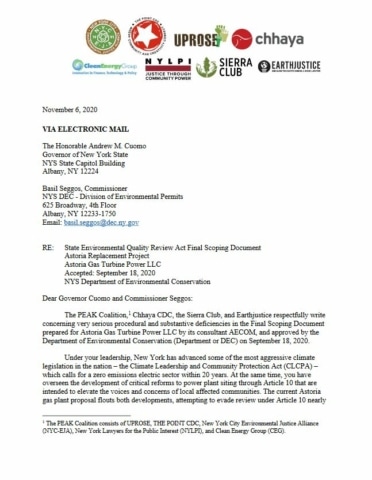
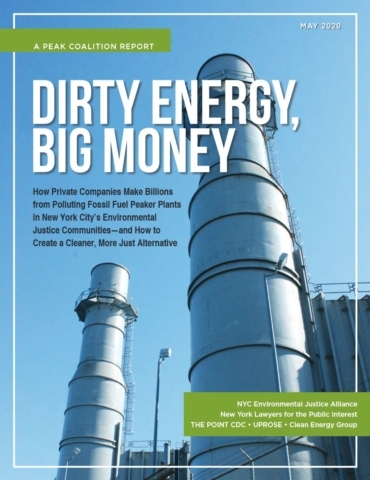
PEAK Coalition Comments on Title V Permit for Rikers Island Facility
The PEAK Coalition, a campaign to end the long-standing pollution burden from fossil fuel-fired power plants, submitted comments to the New York State Department of Environmental Conservation on the Title V Permit for Rikers Island Facility.